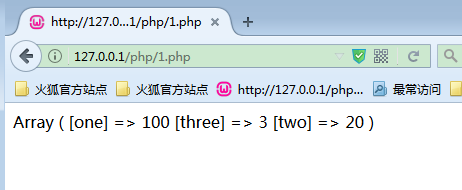
This article collects 10 articles about php about the php uasort() function. Welcome to collect 1. Introduction to the difference between array_multisort and uasort in arraylist namespace php array sorting array_multisort and uasort: arraylist namespace: arraylist namespace php array sorting array_multisort and uasort The difference: Example: (concise) uasort($arr,create_function('$a, $b','return $a['line_num']<$b['line_num'];')); **** *********Function definition and syntax**************** array_multisort (PHP4 >= 4.0b4) array_multisort --- Sorting 2. alwayscomebacktoyourlo
1.10 recommended articles about asort()

## Introduction: This article The article collects 10 articles about php about the php uasort() function. Welcome to collect 1. arraylist namespace php array sorting array_multisort and uasort Introduction: arraylist namespace: arraylist namespace php array sorting difference between array_multisort and uasort: Example: (Concise) uasort($arr,create_function(...
2. 10 recommended content ofasort()

Introduction: This article collects 10 articles about php and the php uasort() function. Welcome to collect 1. arraylist namespace php array sorting Introduction to the difference between array_multisort and uasort: arraylist namespace: arraylist namespace php The difference between array sorting array_multisort and uasort: Example: (concise) uasort($arr,create_function(...
3.Recommended 10 articles about the php uasort() function

4.
Recommended 10 articles about the php asort() function

5.

6.

##7.
PHP multidimensional array php array function sequence asort - Sort the element values of the array in ascending order, maintaining the index relationship##8.php array function sequence asort() - Sort the element values of the array in ascending order, maintaining the index relationship_PHP tutorial
Introduction: PHP array function sequence asort() - sorts the element values of the array in ascending order, maintaining the index relationship. asort() Definition and Usage The asort() function sorts an array and maintains index relationships. Mainly used for sorting associative arrays where the order of cells is important. Optional second parameter package
9.php One-dimensional array sorting and multi-dimensional array sorting_PHP tutorial
Introduction: PHP one-dimensional array sorting and multi-dimensional array sorting. PHP tutorial one-dimensional array sorting and multi-dimensional array sorting first look at the examples of one-dimensional data sorting asort() function and ksort() function?php //asort() function is based on the ascending order of the array value $mix = array(Clalei
10.PHP function asort() is analyzed in a specific way using value sorting_PHP tutorial
Introduction: PHP function asort () Analysis using the specific method of sorting by value. In our previous article, we mentioned how to use the ksort() function to sort the array by keyword. So, today we will focus on how to use values to sort arrays##.
#【Related Q&A recommendations】:Looking at a PHP asort() sorting problem?
The above is the detailed content of 10 recommended articles about asort(). For more information, please follow other related articles on the PHP Chinese website!




